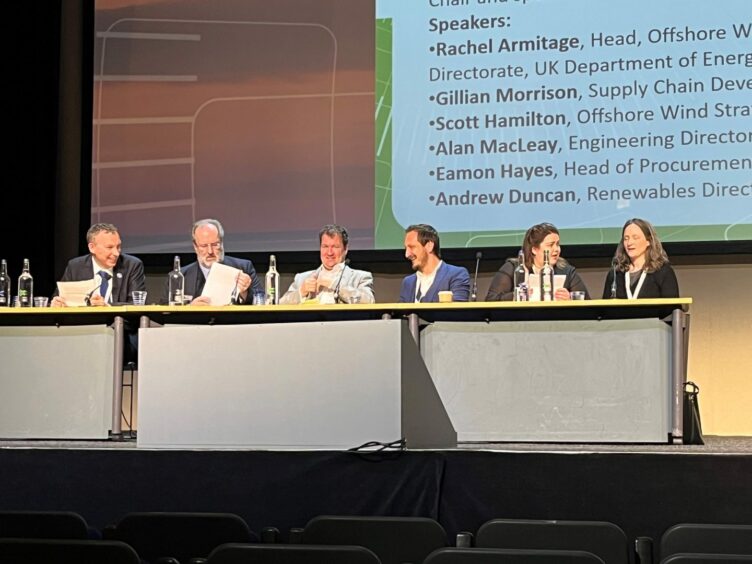 © SYSTEM
© SYSTEM For the Energy Voice team, and many others besides, May has been the month of conferences.
Events covering different facets of the UK energy industry have taken place in the likes of Glasgow, Aberdeen and Norwich, with more to follow in the coming months.
Linking all of these conferences – All-Energy, Decom Week, and Southern North Sea 2023 – has been one core theme, and no, it’s not collaboration, though that inevitably cropped up too.
Skills – or the lack thereof – dominated the agenda at all three events, as concerns grow over where industry is going to find the numbers needed to enact the transition.
Aberdeen and Grampian Chamber of Commerce bared the scale of the issue recently with warnings that a crunch on the ability of firms to find staff for oil and gas, and renewables projects poses a “significant threat” to the Granite City.
It is not just the north-east that is grappling with the problem though, and an entire stage at the East of England Energy Group’s (EEEGR) SNS conference, held last week, was dedicated to skills.
As always, admitting that you have a problem is the first step, but finding solutions is will be the clutch play. How can industry translate conference conversations into solid solutions?
“It’s a really important point,” said Michael Love, head of skills policy at OPITO, speaking on the sidelines of EEEGR’s SNS 2023.
“The conference calendar just now is really busy – I was at All-Energy a couple of weeks ago in Glasgow – and I certainly think we’re making a lot of progress in terms of how skills as a whole are perceived across the industry.
“We’ve gone from the skills session at All-Energy being at 4pm on the second day of All-Energy in 2022, to being directly are the plenary this year. There is also a dedicates skills session here at SNS 2023, which is driving how important the conversation is. But there absolutely need to be more than just a conversation.
“Not only is there the focus on aligning standards and making it more straightforward for people to travel into different sectors, but there’s a whole load of underpinning work that supports that, looking at things like career pathways.
“There will always be sector specific training to some degree, but for me it’s when we start seeing these frameworks go from something conceptual, to being put down on paper, to looking at the data – then you start to see the quantifiable value.
“So how do we go from just talking about it to doing it? I think we are doing it.”
A cornerstone of efforts to east the energy industry’s talent shortage is the creation of a “jobs passport”, which OPITO is leading on the development of.
It is targeted for delivery this year – though there are still some barriers that need to be cleared – and is considered vital for allowing oil and gas workers to transfer into renewables without large retraining fees.
There is also work being done through the North Sea Transition Deal (NSTD), a landmark £16 billion pact between industry and government.
Signed in 2021, the agreements sets out how the sector will work with minister to “deliver the skills, innovation and new infrastructure required” to reach net zero.
Mr Love, who leads on the NSTD for OPITO, says the pact has allowed for joined up thinking on how industry can attract and develop the workforce of the future.
He said: “Having government and industry side by side, allowing different opinions to be shared, and presenting a united front, is much more powerful than working from siloed areas. It gives strengths, and allows everything to be brought together.”
“The NSTD is a transformational agreement; the first of its kind for a G7 country, and Offshore Energies UK (OEUK) and government are the signatories on that document. But, given our heritage in skills standards and driving competence improvements throughout the sector, OEUK delegated the task of leading on people and skills to us.
“Whilst they are critical in driving forward a number of D&I centric pieces of work – which are fantastic – skills is what we do, and that puts us in a position to drive forward these priorities, which are challenging at times.”


